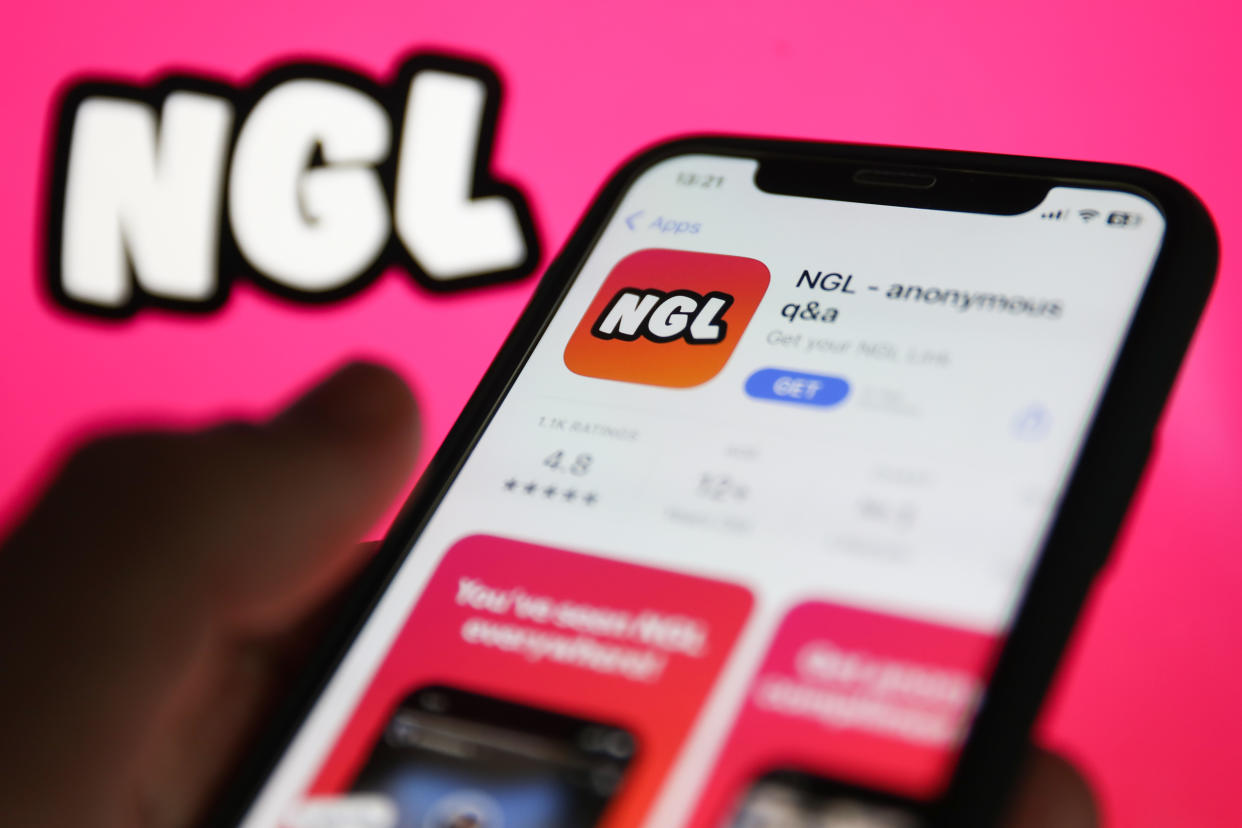FTC bans NGL from offering its anonymous social app to minors

In a first, the Federal Trade Commission is banning an app from serving users under the age of 18. The agency announced on Tuesday that it's banning NGL, an anonymous social app, from marketing or offering its app to minors. NGL will pay $5 million to settle the lawsuit.
Launched in 2021, NGL rose to the top of the app store based on its premise of allowing users to post links to their social accounts that friends can click on to send in anonymous questions.
The FTC and the Los Angeles DA's office allege that the app and its co-founders not only marketed NGL to minors, but that they also falsely claimed that its AI content moderation system filtered out harmful messages and cyberbullying.
The complaint also alleges that NGL sent fake questions that appeared to come from real people to trick users into paying its $9.99 monthly subscription to get hints about who sent the messages.
TechCrunch found this to be the case back in 2022, when we shared an NGL link inviting questions in an Instagram Story that was live for just a mere moment before we removed it. A few hours after posting the link, we received questions from half a dozen "people" on NGL. But in reality, no one had seen our link because it wasn't live for more than a second.
The FTC says that NGL resorted to automatically sending users fake computer-generated questions in 2022 after failing to generate interest in its app. Users started receiving fake messages such as “are you straight?” or “I know what you did," according to the complaint. When users saw the questions, NGL would encourage them to buy the app's monthly subscription to get hints about the identity, despite it coming from a bot.
"NGL’s bait-and-switch tactic prompted many consumers to complain, which NGL executives laughed off, dismissing such users as 'suckers'," the FTC says.
In addition, the complaint alleges that NGL failed to clearly disclose consent for recurring charges for its paid service and that the company violated the Children's Online Privacy Protection Act (COPPA) Rule, which requires apps that are directed to children under 13 to inform their parents about the personal information they collect.
“NGL marketed its app to kids and teens despite knowing that it was exposing them to cyberbullying and harassment,” said FTC Chair Lina Khan in a press release. “In light of NGL’s reckless disregard for kids’ safety, the FTC’s order would ban NGL from marketing or offering its app to those under 18. We will keep cracking down on businesses that unlawfully exploit kids for profit.”
As part of the settlement, NGL has to implement an age gate that prevents new and current users from accessing the app if they are under 18. NGL is also prohibited from misrepresenting the sender of messages and required to disclose information about recurring charges. Plus, the company is prohibited from misrepresenting the capabilities of its AI content moderation system's ability to filter out cyberbullying.
"After nearly two years of cooperating with the FTC’s investigation, we view this resolution as an opportunity to make NGL better than ever for our users and we think the agreement is in our best interest," said NGL co-founder Joao Figueiredo in a statement to TechCrunch. "While we believe many of the allegations around the youth of our user base are factually incorrect, we anticipate that the agreed upon age-gating and other procedures will now provide direction for others in our space, and hopefully improve policies generally," he added.
The settlement represents one of the most significant actions taken by the FTC under Chair Lina Khan with the aim of preventing social media services from profiting from practices that have the potential to harm children.


